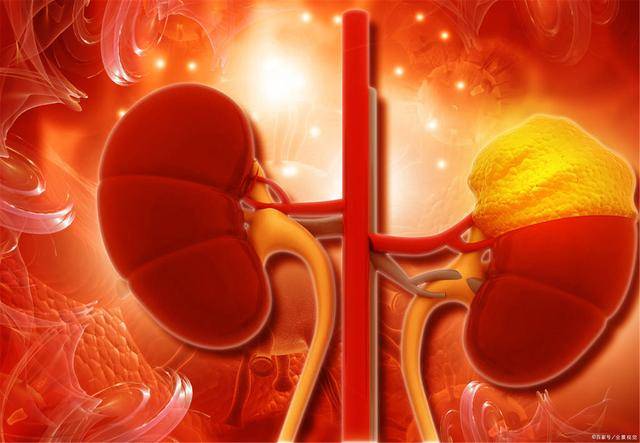One of the main functions of the kidneys is to produce urine, eliminate metabolic waste and toxins from the body, while also absorbing nutrients to maintain normal bodily functions.
The kidneys are located in a relatively hidden part of the body, and their function cannot be easily discerned by the naked eye, but urine is often referred to as the “barometer” of kidney health.
Especially during the first morning visit to the restroom, the condition of the urine can directly reflect the health of the kidneys. Let’s analyze this in detail below.
In men, if the first morning visit to the restroom meets 3 criteria, congratulations, the kidneys are in a strong period.
Abnormal Urine Color
Normally, urine is slightly yellowish without sediment or excessive foaming.
This is mainly because no water is consumed during the nighttime, leading to concentrated urine in the bladder, causing it to appear yellow. If the morning urine is dark yellow or slightly red, it is a sign of abnormal kidney function.
Difficulty in Urination
If urination in the morning feels not entirely smooth and persists for several days, it may indicate difficulty in urination, signifying a urinary tract infection. While the male and female urinary systems differ, they both involve the kidneys filtering urine to the bladder, and any renal issues could lead to urinary tract infections.
In addition to the difficulty in urination, if there is accompanying pain, it is crucial to seek medical attention promptly to check the health of the kidneys.
Foamy Urine
Foamy urine, known as “proteinuria,” is an important indicator of kidney health abnormalities and can typically be detected through urine tests. If foamy urine is observed in the morning along with edema, it could indicate kidney inflammation and damage to the renal corpuscles.
The presence of foamy urine is associated with various conditions like diabetic kidney disease, requiring active treatment to prevent more severe illnesses.
Abnormal Urine Volume, Increase, or Decrease
Under normal circumstances, with a daily water intake of about 1500 milliliters per person, the urine output per void should be approximately 200 milliliters. Any increase or decrease in urine volume could be related to kidney diseases. Increased urination may signal acute kidney failure or conditions like interstitial nephritis and renal tubular disorders.
If you do not experience any of these symptoms, congratulations, your kidneys are in a strong period, indicating good health. For those with kidney disorders, dietary precautions are necessary to avoid worsening the condition.
To prevent aggravating kidney diseases, eliminate these 4 items from your diet and your kidneys might return the favor:
Foods High in Sodium
High sodium intake can disrupt the balance of sodium and potassium in the body, increasing the risk of hypertension and impacting the kidneys’ detoxification and metabolism functions. Avoiding pickled foods can reduce kidney damage and prevent sodium accumulation in the body.
High-Sugar Foods
Kidneys are sensitive not only to salt but also to sugar. Regular consumption of high-sugar foods can lead to excessive sugar intake, causing blood sugar fluctuations that may trigger diabetes and increase the burden on the kidneys.
Studies suggest that a high intake of sugar is associated with an elevated risk of kidney stones; hence, individuals with kidney issues are advised to reduce or avoid sugar consumption for better kidney health.
Foods Rich in Potassium
Kidney disorders can affect the body’s filtration and metabolism functions, leading to potassium accumulation, which poses an extra burden on the heart if potassium levels in the blood become too high. To safeguard against kidney diseases, quickly blacklist foods high in potassium, such as bananas, potatoes, avocados, which exceed the recommended potassium levels and could aggravate kidney diseases.
Smoking and Drinking
Many men have the bad habits of smoking and drinking, which significantly increase the risk of kidney diseases. Harmful substances in tobacco can indirectly harm kidney health, while alcohol adds a substantial burden to the kidneys. To prevent kidney diseases from worsening, men should quit smoking and drinking promptly.
Protecting your kidneys involves two important actions:
Healthy Hydration to Reduce Kidney Strain
In traditional Chinese medicine, “the kidneys govern water.” To maintain kidney health, it’s crucial to replenish the body with water, promoting faster metabolism, toxin elimination, and robust kidney function. Drink a glass of warm water after brushing your teeth in the morning to dilute blood concentration and facilitate detoxification. Ensure a daily water intake of at least 1500 milliliters, sipping slowly and consistently to nurture your kidneys.
Regular Exercise
Exercise is a vital way to boost immunity, enhance circulation for toxin removal, metabolic activity, and protect your kidneys. Tai Chi is a kidney-nourishing exercise that emphasizes deep breathing, akin to nurturing the kidneys. Engaging in Tai Chi can strengthen your body and support optimal kidney function.


